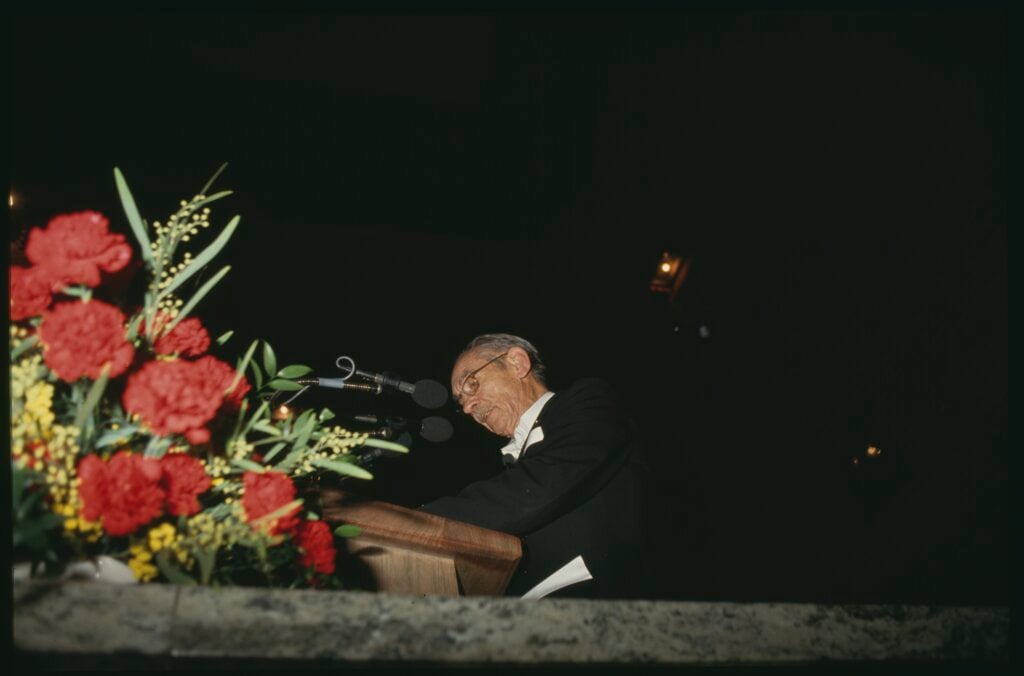George H. Hitchings
Banquet speech

George H. Hitchings’ speech at the Nobel Banquet, December 10, 1988
Your Majesties, Your Royal Highnesses, Ladies and Gentlemen,
On behalf of my colleagues and myself, I wish to express our deepest thanks for the honor granted us today. Forty years ago when we began our studies in nucleic acids, we certainly did not anticipate receiving such an award.
We were inspired by basic questions concerning the biochemistry of cellular reproduction, and the search led us on a journey filled with new knowledge and exciting discoveries. That is the dream of every scientist. We have been further blessed with the privilege of seeing our work in the laboratory become medical therapies to combat diseases like malaria, leukemia, bacterial infections and gout.
The practical application of research to the problems of disease is a special strength of the pharmaceutical industry. It is unlikely that such an array of innovative drugs would have emerged from our investigations had we been working in a different research setting.
Each scientific discovery is built upon its predecessors and we give thanks for the dedicated men and women who held tenaciously to their visions and for the legacy of their knowledge. Our contributions to medicine also were built upon the century-long traditions of Burroughs Wellcome Co. where Gertrude Elion and I pursued our research careers.
The company’s co-founder, Sir Henry Wellcome, was an American pharmacist who made research the foundation of his enterprise. He established the Wellcome Laboratories for physiological and chemical research in 1894 and 1896. Wellcome told his scientists, “If you have an idea, I will give you the freedom to develop it.” That philosophy supported us through four decades of research and continues to nurture our successors. Our greatest reward has been the ability to develop our ideas for the service of mankind.
When William Faulkner accepted the Nobel Prize in Literature in 1949, he spoke of the verities of the human heart – love and honor, pity and pride, compassion and sacrifice. As a scientist, I should like to suggest three verities of the human mind – curiosity, creativity, and the love of knowledge.
The Nobel Prize in Medicine honors these truths, and we receive this recognition with humility and gratitude. Thank you.
Nobel Prizes and laureates
Six prizes were awarded for achievements that have conferred the greatest benefit to humankind. The 12 laureates' work and discoveries range from proteins' structures and machine learning to fighting for a world free of nuclear weapons.
See them all presented here.
